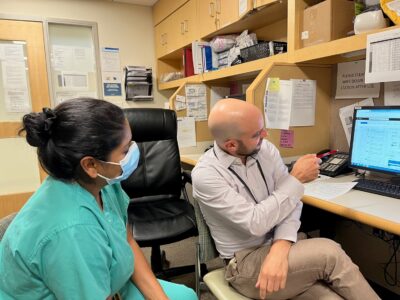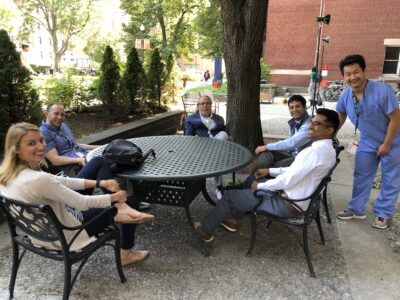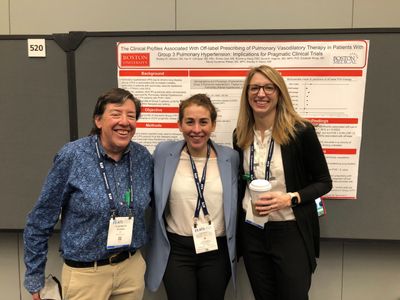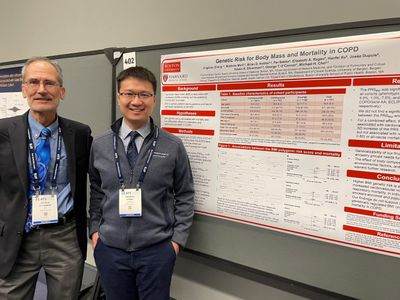Mentorship
 |
 |
Clinical Mentorship: During all three years of fellowship training, trainees will be assigned a Continuity Clinic preceptor who will be providing longitudinal feedback on clinical reasoning and management. Additionally, the Continuity Clinic preceptor will serve as a clinical mentor and coach for career development and opportunities. During the third year, fellows planning academic clinical careers meet regularly with program leadership to tailor clinical electives to career goals, to identify career opportunities, and to link fellows with our vast country-wide network of practicing alumni.
 |
 |
Research Mentorship: All trainees in the pulmonary and critical care fellowship program are actively involved in a research project following the completion of their first year of clinical training. In January of each year, first-year trainees participate in the Introduction to Research Program course, where they have the chance to learn about the varying research groups in our section, meet the investigators, and learn about potential projects. First year trainees choose which research group they would like to join, and typically this is based upon their particular research interests and the research mentor. Trainees will spend 2-3 years working with developing their research skills with their individual research mentors. Many of our trainees become independent physician-scientists in the field of pulmonary and critical care medicine research.
Executive Committee: All trainees meet at least annually with the Pulmonary Center’s Executive Committee. The purpose of the Executive Committee is to provide individualized attention and career guidance for each trainee. The committee provides senior level career advice to trainees in a manner focused on their specific needs. This meeting also serves to track and evaluate the progress of each trainee as they advance through their research and subspecialty training years and ensures trainees are meeting the expected milestones. Trainees provide their up-to-date CV, the specific aims of their research, schedule of planned research and clinical activities, and their individual development plans which have been completed with their mentors. During the Executive Committee meeting there is an in-depth discussion of career goals, research, clinical subspecialization, relationships with mentors and colleagues, and work-life balance and wellness. In addition, the committee provides guidance in setting the timing for grant submissions and sponsorship opportunities. The committee provides real-time feedback on career opportunities, networking and professional development.